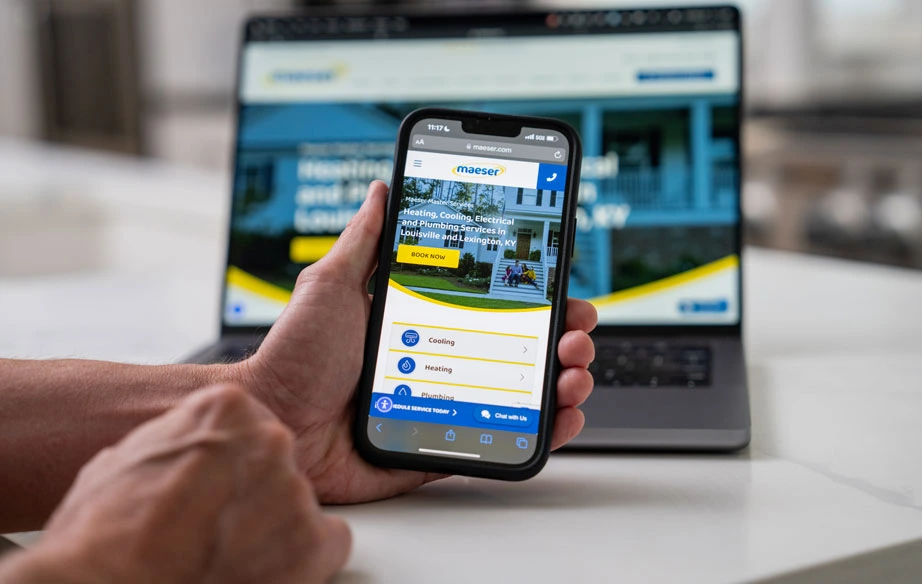Have you ever wondered how a heat pump works? You may understand more than you realize, as a heat pump uses the same principles as an air conditioner, which transfers indoor heat to the outside of your home with the use of a refrigerant. An all-electric heat pump does the exact same thing, except in the winter you can reverse the pump to transfer heat from the outside into your home. A dual fuel system, on the other hand, is a heat pump with a gas furnace as backup.
The result is a single system for both heating and cooling that works much more efficiently, reducing heating costs by as much as 50 percent, according to Energy.gov. There are certain problems that can arise with a heat pump, though, so it’s good to understand a little more about how a heat pump works and how common problems can be fixed.
Failure to Cool Properly
There are a number of reasons why your heat pump might not be able to cool your home enough in hot weather. Many of the causes of insufficient cooling are similar to those you’d have with any air conditioning system, such as a dirty air filter, blocked or leaky ductwork, a faulty thermostat, or low refrigerant. Since you’ll be using the same system year round, it’s important to have routine maintenance performed and refrigerant levels checked regularly.
Insufficient Heat
Since a heat pump shares a lot of characteristics with an air conditioner, if your heat pump is failing to heat your home adequately, you’ll want to start out by looking at many of the same causes of insufficient cooling: not only problems with the ductwork or thermostat, but also the potential for low refrigerant levels. The house may also have insufficient insulation and/or windows as well. Since a heat pump uses the same refrigerant to pull heat into a home during the winter that it uses to push the heat out during the summer, maintaining proper refrigerant levels is crucial year round.
If your system is operating properly and still can’t heat your home, however, it’s possible your climate is a little too cold for a heat pump to do the job alone. While heat pumps are a cost effective way to heat your home down to about 30 degrees* outside, the colder it gets the less heat there is to extract and transfer into your home. As a result, for colder temperatures, we suggest having auxillary heat run as a backup. *Some higher efficiency equipment will go down to approximately 0 degrees.
Icing Up
Frozen or iced-over coils can be caused by a number of things. The important thing is to turn the system off and get someone out to take a look as soon as possible, to identify what the problem is and prevent doing more damage to the system. If it freezes daily, it will go into defrost mode once a day and will melt the ice off of the coil.
Icing up can happen when there isn’t enough air flow over the coils, or when the coils haven’t been cleaned in a while and dirt has built up on them. In both cases, the result is that the heat transfer from the air to the refrigerant doesn’t occur properly and the refrigerant becomes too cold, causing condensation on the coils to freeze. When icing up occurs, you’ll find it on the indoor coils in the summer and the outdoor coils in the winter.
Strange Noises
Just like with any furnace or air conditioner, it’s a good idea to be aware of any unusual noises your heat pump may make. Some sounds, such as a whooshing sound the reversing valve makes as it switches, or the slightly tinnier sound of the compressor during the winter defrost mode, are perfectly normal. Other sounds may be an indication that something is wrong, such as a rattling noise indicating something is loose, or the squealing or grinding noise of a bearing going out in the motor. Buzzing or humming, especially if the heat pump won’t start, may mean a bad relay or a seized motor.
Professional Help with Any Problem
It’s good to understand the basics of how a heat pump works, but when it comes down to troubleshooting and fixing problems, it’s time to put your trust in the professionals. Call Maeser today and we’ll do what it takes to keep you comfortable, no matter what the weather.



